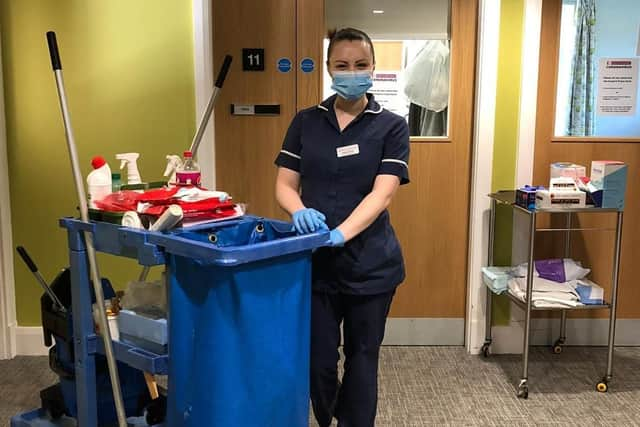Hospice shows what is needed to give expert care during pandemic


This year, many charitable hospices are facing financial challenges, with the support they receive from the public being more important than ever before.
Hospice UK, the national charity which leads Hospice Care Week, estimates that since the Covid crisis began in March hospices have lost in the region of £70m in income.
Advertisement
Hide AdAdvertisement
Hide AdMany hospices in England receive 70 per cent of their funding from public donations through charity shops and events to bring in cash, which has not been possible during the pandemic.


The theme of Hospice Care Week for 2020 is This Is What It Takes and hospices up and down the country are revealing exactly what they are having to do to keep going.
Dr Alan Baron, WLH chief executive, said: “I think people will be surprised by just what it takes to keep a hospice going. Many people don’t realise we have to raise two-thirds of our costs, in order that we can keep on providing specialist palliative and end-of-life care across Wigan and Leigh.
“All of our services have been affected in some way by the Covid-19 pandemic. The theme of This Is What It Takes is very appropriate.
Advertisement
Hide AdAdvertisement
Hide Ad“It has taken a huge amount of effort and dedication from our staff and volunteers to ensure we carry on providing care 24 hours a day, seven days a week, 365 days a year.
“Our in-patient unit has remained open throughout the pandemic and all patients are allowed one visitor, a policy which staff feel is necessary given the current pandemic.
“Our community nursing teams are visiting patients at home but also use video and telephone consultations.
“Our Hospice in your Care Home team has adapted rapidly to support care homes during the pandemic and is offering training free of charge to all care and residential homes in the borough.
Advertisement
Hide AdAdvertisement
Hide Ad“Our Oak Centre day service has gone virtual and bereavement and counselling services are being given over the phone for the first time.
“All services and teams have adapted incredibly well. This is what it has taken.”
WLH relies on more than 600 volunteers and 118 doctors, nurses, healthcare assistants and support staff to provide care to patients at its Kildare Street headquarters in Hindley and in their own homes.
The charity’s services also require a massive logistical operation, getting through 500 pinnies, 1,000 pairs of gloves and 300 surgical face masks every week. WLH raises around £3.5million each year to support its work.
Advertisement
Hide AdAdvertisement
Hide AdTracey Bleakley, chief executive of Hospice UK, said: “Hospice Care Week is an annual week of activity, celebration and action, to raise the profile of, and help to change people’s perceptions of hospice care across the UK.
“There are more than 200 hospices across the UK that work to support individuals and families with end-of-life care.
“Roughly 83 per cent of hospice care is delivered in the community, and that requires a network of staff that people do not necessarily see or know about.
“With the world dealing with the effects of Covid-19 expert end-of-life care is more important than ever, and hospices need our support.”
